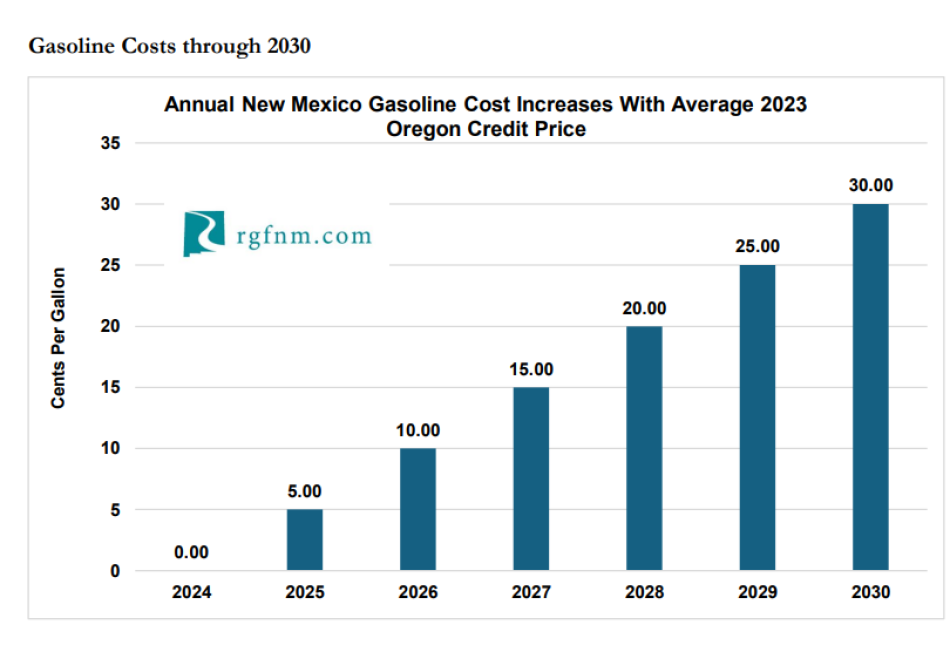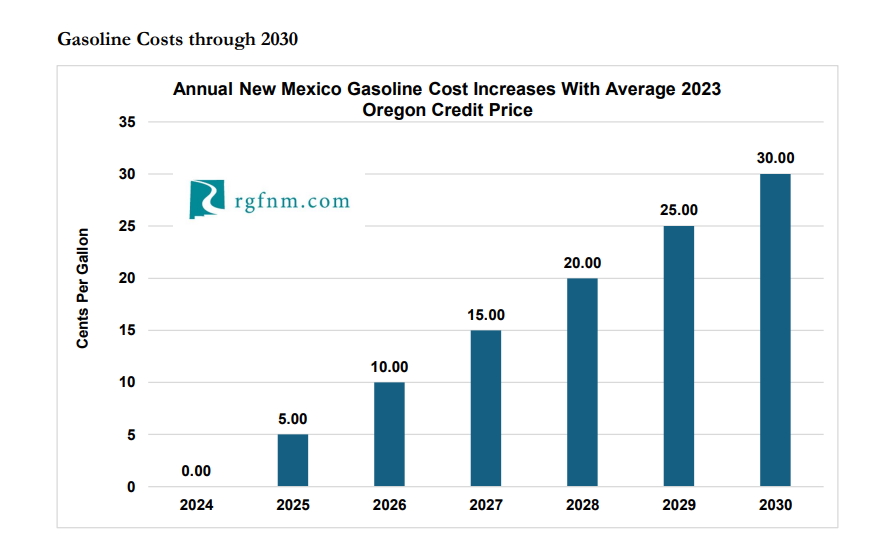New Mexico’s so-called “clean fuel standard” finalized, moves to Environmental Improvement Board

According to an email sent today the New Mexico Environment Department (NMED) has proposed a Clean Transportation Fuel Program to the state’s Environmental Improvement Board (EIB). The action follows the Legislature’s passage of and Gov. Michelle Lujan Grisham’s signing of House Bill 41 in March 2024.
According to the email, “A 60-day public comment period is expected to begin in mid-June 2025, with the EIB considering all feedback before making a final decision. The EIB is expected to hold public meetings starting on September 29, 2025 and continue through October 17, 2025 or as needed.”
A copy of the petition, statement of reasons, and draft proposed rule is available here.
Unlike RGF’s efforts in the Fall of 2023 to kill New Mexico’s controversial EV standards THIS regulation is supported by legislation and thus likely a “done deal.” Sadly, the “fix” is in for a variety of reason. On page 86 of the document linked in the last paragraph the NMED claims “carbon intensity and lifetime emissions” of electricity at ZERO. Of course, in reality, New Mexico utilities won’t be 100% “renewable” until 2045 under the Energy Transition Act (and this is if everything goes as planned). Thus, EV’s still produce CO2 contrary to the NMED’s statement.
Set aside the mining, lubrication (for windmills), transportation, installation, battery backup, and numerous other inputs of so-called “renewables” and the picture would be a bit more nuanced. But, the regulation is going to increase costs to consumers dramatically.
The “clean fuel standard” will phase in gradually, with the aim of achieving a 20% reduction in carbon intensity below a 2018 baseline by 2030 and a 30% reduction by 2040.
Using the formula provided by the Oregon Department of Environmental Quality and the average credit price in Oregon for the year 2023 ($129.75 per credit), Always On Energy Research (AOER) determined that these regulations will increase gasoline and diesel prices by 30 cents and 34.7 cents per gallon, respectively, by 2030. By 2040, the regulations will cause gas prices to be 45 cents per gallon higher than they otherwise would be, and diesel prices will be 52 cents higher.

